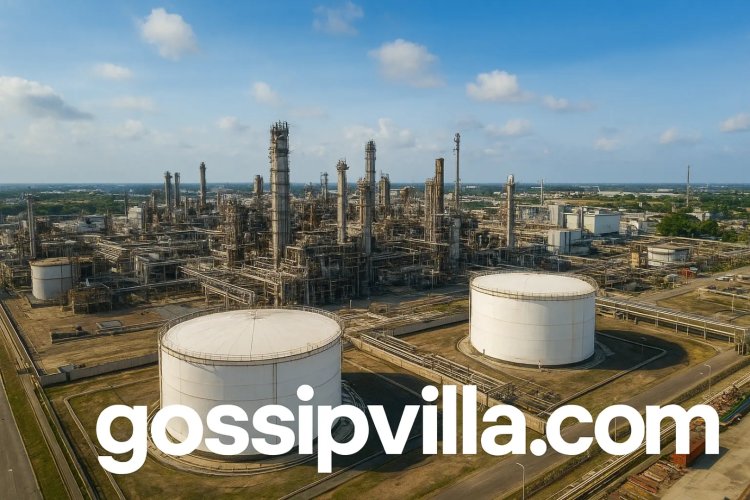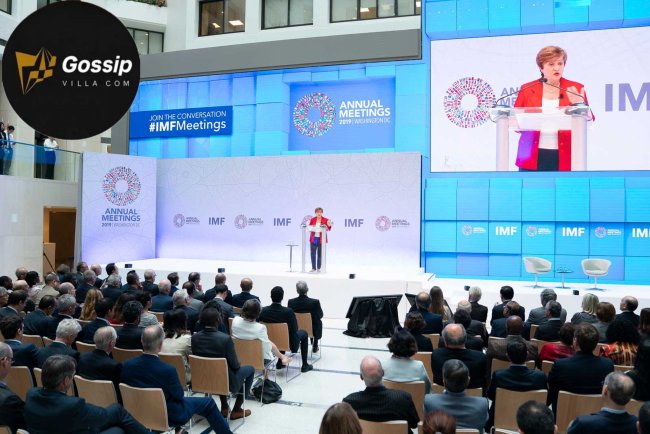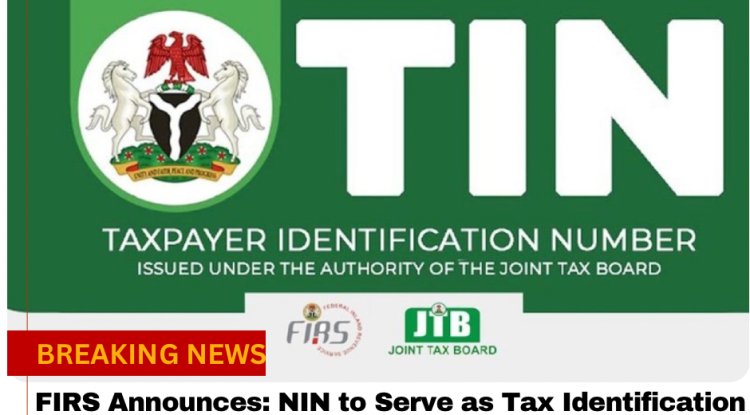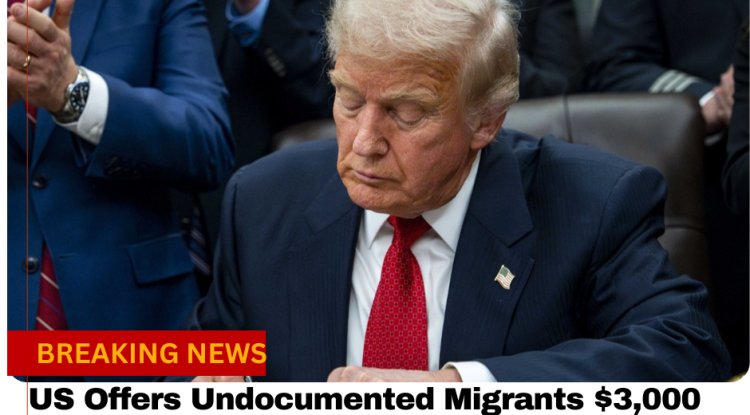Nigeria Drops Planned 15% Fuel Import Tariff to Ease Inflation and Stabilize Market
Nigeria’s government has suspended the proposed 15 percent fuel import tariff to prevent higher pump prices and inflation. The NMDPRA confirms the decision protects consumers and keeps fuel supply stable while refineries expand capacity.

In a major policy reversal aimed at stabilizing the economy and preventing a new wave of inflation, the Federal Government of Nigeria has officially suspended its earlier plan to impose a 15 percent import tariff on petrol and diesel.
The decision was confirmed on Thursday, November 13, 2025, by the Nigerian Midstream and Downstream Petroleum Regulatory Authority (NMDPRA). The agency said the government had “listened to industry feedback and the concerns of ordinary Nigerians,” adding that the proposed duty “is no longer in view.”

According to Reuters, the government initially approved the tariff to encourage domestic refining, reduce dependence on imported fuel, and raise additional non-oil revenue. However, following consultations with marketers, refineries, and economic advisers, the authorities decided to drop the plan temporarily.
The NMDPRA assured the public that the country’s fuel supply remains stable, especially as demand increases during the festive period. Officials urged Nigerians to avoid panic buying or hoarding, emphasizing that the reversal supports the administration’s commitment to maintaining energy stability and consumer protection.
“We have reviewed the possible impact of the duty and concluded that its timing is not favourable to current economic realities,” a senior NMDPRA official told reporters, according to Vanguard Newspaper. “Our priority is ensuring adequate supply and price stability for consumers.”
Why the Fuel Import Tariff Was Introduced
The 15 percent ad-valorem duty was first approved in October 2025 under the Renewed Hope Agenda of President Bola Ahmed Tinubu.
It was part of a larger fiscal strategy designed to:
Support local refining capacity (especially the new Dangote Refinery in Lagos).
Reduce foreign-exchange pressure caused by large-scale fuel imports.
Generate new non-oil revenue streams to strengthen the federal budget.
Level the pricing field between imported fuel and locally produced fuel.
Nigeria, despite being one of the world’s top crude-oil producers, imports nearly 80 percent of its refined petroleum products. This dependence drains billions of dollars annually from the foreign-exchange market and weakens the naira.
When the Dangote Refinery announced its first batch of refined diesel and aviation fuel earlier this year, government officials believed it was the right time to shift policy in favour of domestic producers. The tariff was supposed to make imported fuel slightly more expensive, allowing local products to compete.
However, the plan faced resistance from independent marketers, downstream operators, and civil-society economists who warned that the new tariff could raise fuel prices, increase transport costs, and trigger fresh inflation.
Why the Tariff Was Suspended
After weeks of debate, the Federal Government opted for a policy suspension rather than enforcement, citing three main reasons:
1. Inflationary Pressure:
Inflation in Nigeria is already at its highest level in years, driven by food, energy, and transportation costs. Analysts predicted that the 15 percent import duty could push petrol prices up by as much as ₦150 per litre, worsening the cost-of-living crisis.
2. Incomplete Refinery Readiness:
Though the Dangote Refinery has started operations, it is not yet producing enough petrol to meet national demand. Imposing an import tariff before full local production capacity could create artificial scarcity.
3. Economic and Political Timing:
With Nigeria still struggling to stabilize the naira and reduce public spending, a new tax on fuel imports could further strain the economy and public confidence.
According to Reuters, the Ministry of Finance and the Petroleum Ministry jointly advised the presidency to suspend the measure “until economic indicators improve and domestic refining capacity expands.”
What Experts Are Saying
Energy and economic experts have largely praised the government’s decision to step back, describing it as a pragmatic move that prevents a short-term economic shock.
Energy consultant Benson Idowu, quoted by Vanguard, said:
“It’s a smart short-term decision. Nigeria’s local refineries are still stabilizing. A tariff at this point would have disrupted supply and pushed up inflation.”
He added that the government must now focus on long-term solutions ensuring that local refineries achieve full production, strengthening fuel distribution infrastructure, and improving transparency in the downstream sector.
Dr. Amaka Ifeanyi, an economist at the University of Lagos, also told journalists that the suspension reflects economic realism.
“While the goal of promoting local refining is valid, you cannot protect local industries by punishing consumers when inflation is already high. The suspension gives Nigeria breathing space.”
Economic and Industry Implications
The tariff reversal is expected to stabilize fuel prices in the short term and preserve supply consistency across the country.
1. Relief for Consumers:
With no import duty, the pump price of petrol and diesel is less likely to rise sharply in the coming weeks. This helps transport operators, small businesses, and ordinary households.
2. Stable Market for Importers:
Importers and marketers can continue operations without added tax pressure, ensuring consistent product availability.
3. Challenges for Local Refineries:
On the flip side, the suspension means local refiners like Dangote must still compete against imported products. Without tariff protection, imported fuel remains cheaper.
4. Foreign-Exchange Stability:
Because fuel imports are a major source of FX demand, the policy suspension may slightly delay government efforts to conserve foreign reserves. However, it helps keep inflation expectations low, which supports broader economic stability.
Impact on Nigeria’s Broader Economy
Fuel prices directly affect nearly every sector of the Nigerian economy. Transportation, agriculture, and logistics rely heavily on petrol and diesel.
The decision to suspend the tariff will likely help maintain price stability during the high-demand holiday season, especially for goods transportation and inter-state travel.
For Nigeria’s rapidly expanding digital-service economy, including writers, copywriters, and virtual assistants, stable fuel prices mean fewer disruptions in power supply and internet connectivity two major challenges that impact productivity.
Stable energy costs also help small tech hubs and coworking spaces maintain predictable operating expenses. This indirectly supports the country’s vision for a digitally-driven economy, where freelancers and startups can thrive without unbearable overheads.
What Happens Next
Government insiders suggest that the fuel import tariff may be revisited in 2026, once Nigeria’s local refineries reach optimal output and inflation moderates.
The NMDPRA and the Federal Ministry of Finance will continue monitoring the fuel market and may introduce new incentives for local refiners instead of punitive tariffs on importers.
Observers say the government’s next steps will likely include:
Fast-tracking full operations at Dangote and other modular refineries.
Strengthening domestic fuel-distribution systems.
Expanding downstream digital-tracking technology to prevent smuggling.
Enhancing regulatory transparency and data-driven policy decisions.
If these reforms succeed, Nigeria could significantly cut fuel imports, save billions in FX, and position itself as a regional energy hub in West Africa.
READ MORE ON HOW IMF Raises Fresh Alarm Over Nigeria’s Rising Debt and Oil Dependence Urges Urgent Fiscal Reforms
The suspension of the planned 15 percent fuel import tariff highlights the government’s careful balancing act between fiscal reform and public welfare.
While the long-term goal of energy independence remains unchanged, authorities have opted to protect consumers and sustain market stability for now.
It’s a reminder that economic reform works best when it aligns with social realities and for many Nigerians, this decision offers welcome breathing space amid rising prices and economic uncertainty.
What's Your Reaction?




















